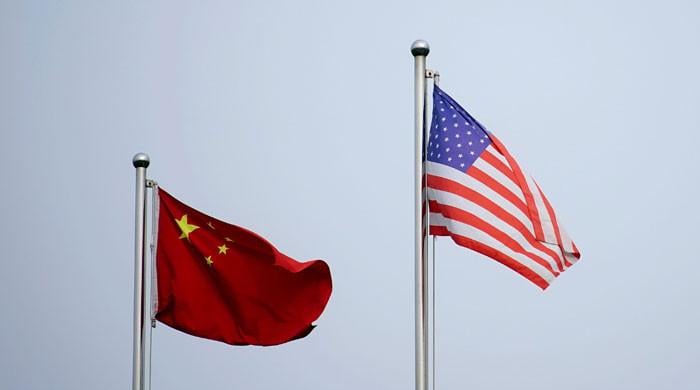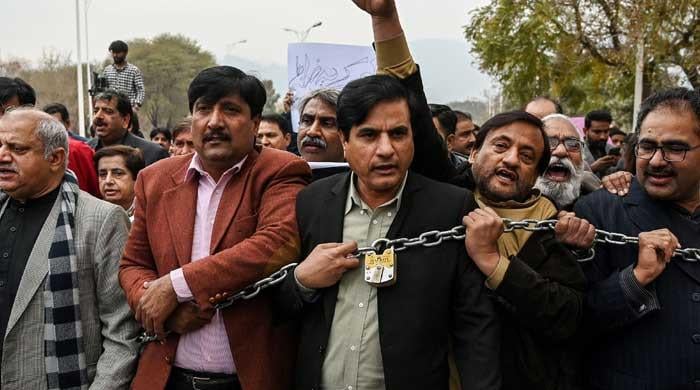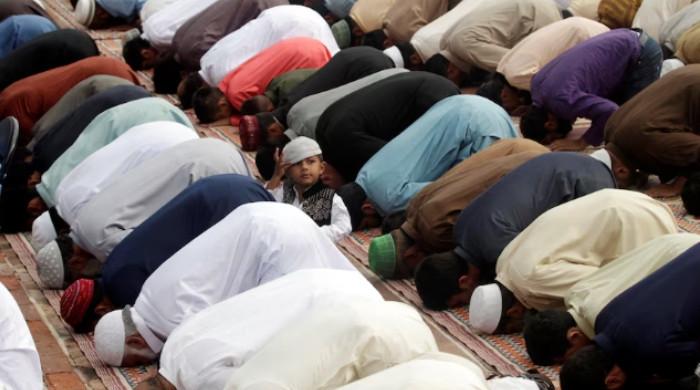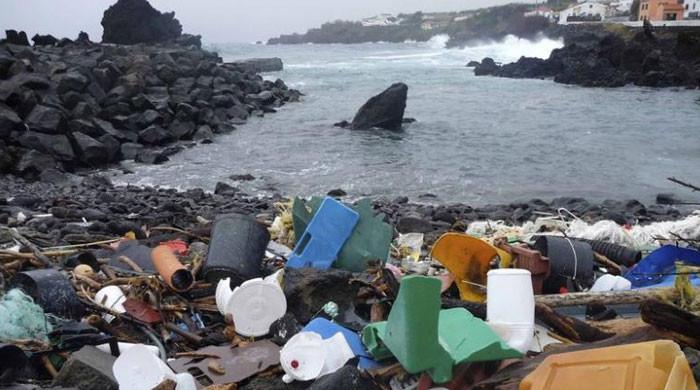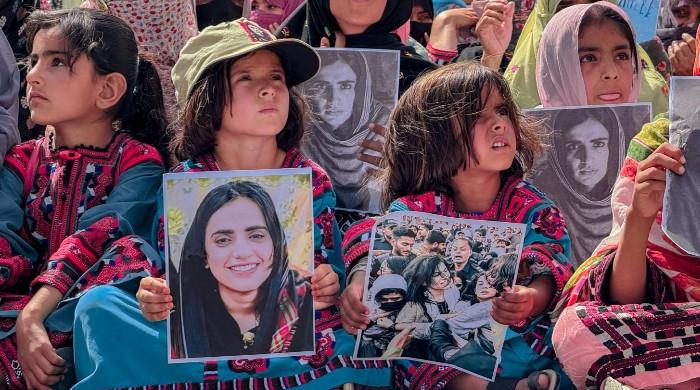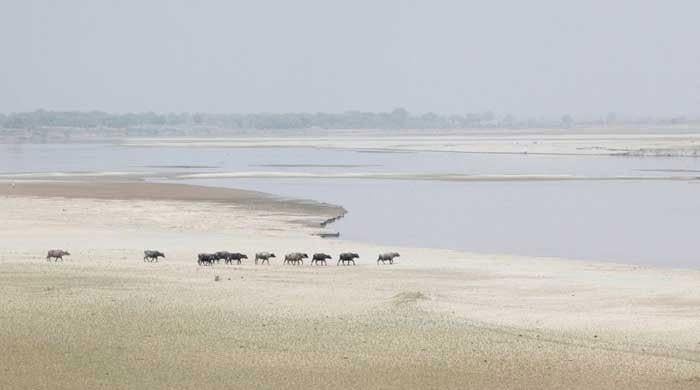Dua Mangi kidnapping: Our society needs to change its mindset, and fast
'Don't teach me what to wear. Teach your sons not to rape'
December 03, 2019
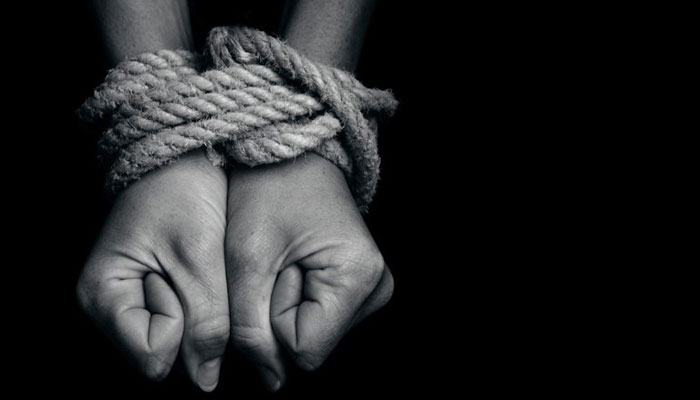
You'd think the knee-jerk reaction to a woman getting kidnapped and her friend getting shot in the neck would be instant condemnation. You'd expect society to be horrified at the prospect of debauchers on the loose who can kidnap a woman at a busy street in the metropolis and quite literally get away with it. You'd be worried how unsafe Karachi's streets are for people in general and women in particular. Unsurprisingly, in Pakistan, empathy takes a backseat while victim-blaming takes the lead.
Yes, I'm talking about the Dua Mangi case. A young woman strolling with her male friend, Harris Fatah, on a secluded road in DHA's Bukhari Commercial area was kidnapped by unidentified men. When her friend Harris put up resistance, they shot him in the neck and sped away.
Police and law enforcement agencies are working on the case but for now, all they have is CCTV footage of a Honda Civic speeding away after shooting Harris and kidnapping Dua. She could be anywhere and God knows what may have been done to her.
As netizens got wind of the incident, the news of Dua's kidnapping spread like wildfire on social media. The response, for the most part though, was disappointing.
A large number of people reacted in the most insensitive manner. They posted Dua's personal pictures on popular social media pages and shamed her for wearing western attire. Some were of the opinion that when a woman dresses in an 'un-Islamic' way, she is 'inviting' kidnappers — and that is the problem with how our society thinks.
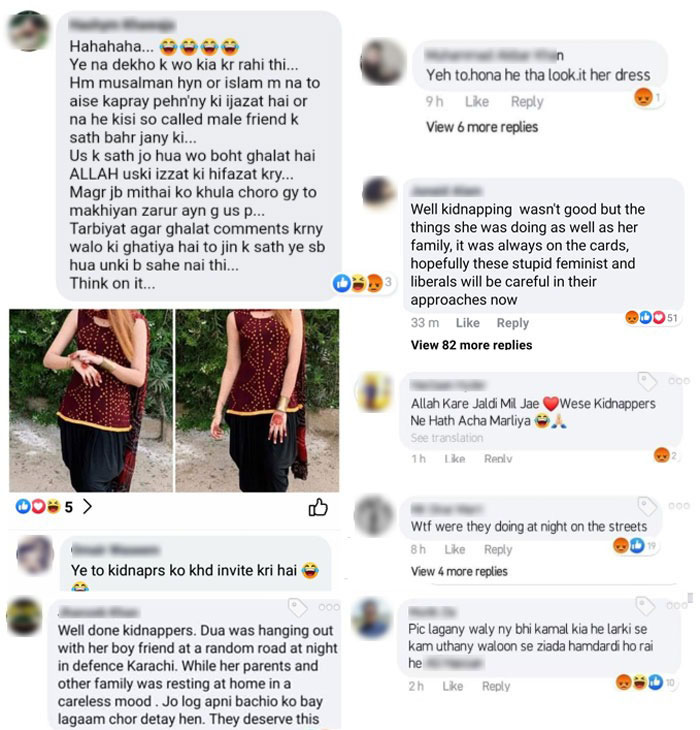
We need to change how people find fault with the victim and not the aggressor. Our society's instant reaction to whenever anything horrifying happens to a woman is to slut-shame her for wearing whatever she feels like wearing. What happens, as a result, is that we're condoning the act of violence committed by the man and, as a result, subconsciously telling women to be prepared for something bad, if God forbid, you try to exercise your independence.
Where did we go wrong? Why are we asking all the wrong questions? Why can't a woman be free enough to dress the way she wants to and go for a stroll with her male friend at night? Would we be asking the same questions if a man got kidnapped and his friend got shot in the neck? If 'proper dressing' (whatever that means) wards off kidnappers, sexual harassers, and all the 'bad men', then why do women in burqas or with scarves over their heads or minor girls, for that matter, get molested? If we need to use religion to prove our arguments, why are they restricted to just one gender? Why don't we focus on the need to teach our sons from the very beginning to lower their gaze in respect of a woman—regardless of what she's wearing—and not stare at her? Why don't we teach our sons not to harass women at bus stops and in public parks? In November 2017, a teenager was arrested in Hafizabad on suspicion of raping a chicken to death. Was the chicken not dressed properly?
READ MORE: Dua Mangi case: Police arrest two students
The problem doesn't lie in how a woman chooses to dress or who she appears to befriend. It lies in our minds and how we have raised and are raising men to this day. I saw something meaningful written on a placard a woman was carrying at a protest somewhere — and it did strike a chord.
"Don't teach me what to wear. Teach your sons not to rape."
Resonates well, right?
It's about time we run public awareness advertisements on TV teaching men not to rape. We need to tell people not to normalise staring, sexual harassment, treating women like the inferior sex. In our homes, in our schools, at public places. We need to get used to the idea of a woman choosing what she wants to wear, wherever she wants to wear it. We need to help women reclaim public spaces by making it safe for them to do so by being civilised enough. We need to stop victim-blaming, slut-shaming, and everything else that humiliates a gender.
Let’s take a look at what the world is doing.
In June 2018, a Japanese spacecraft landed on an asteroid called Ryugu, 5.5 million miles from Earth. Japanese scientists aim to bring back samples from the asteroid's surface and debris to use it to study how similar asteroids could have seeded the Earth with ingredients for life billions of years ago. In July 2019, the World Health Organisation came up with a breakthrough for curing Ebola. Two treatments, called REGN-EB3 and mAb-114, are cocktails of antibodies injected into people's bloodstreams. These therapies saved about 90% of new infected patients in the Congo. In October this year, French researchers came up with an exoskeleton that helped a paralysed man walk after the machine decoded signals from his brain.
In Pakistan, we're more concerned with how a woman chooses to dress as opposed to the abuse she suffers. We need to change our mindset, and we need to do it fast.





